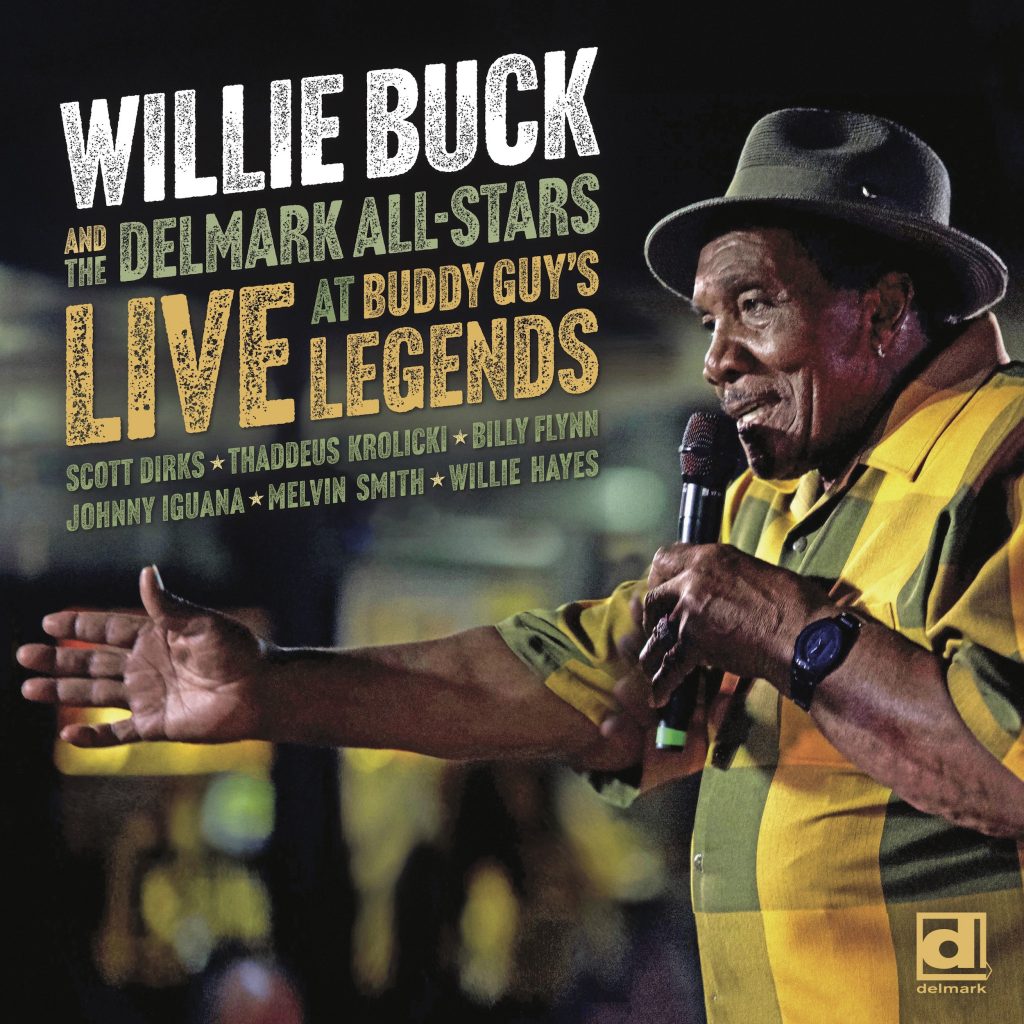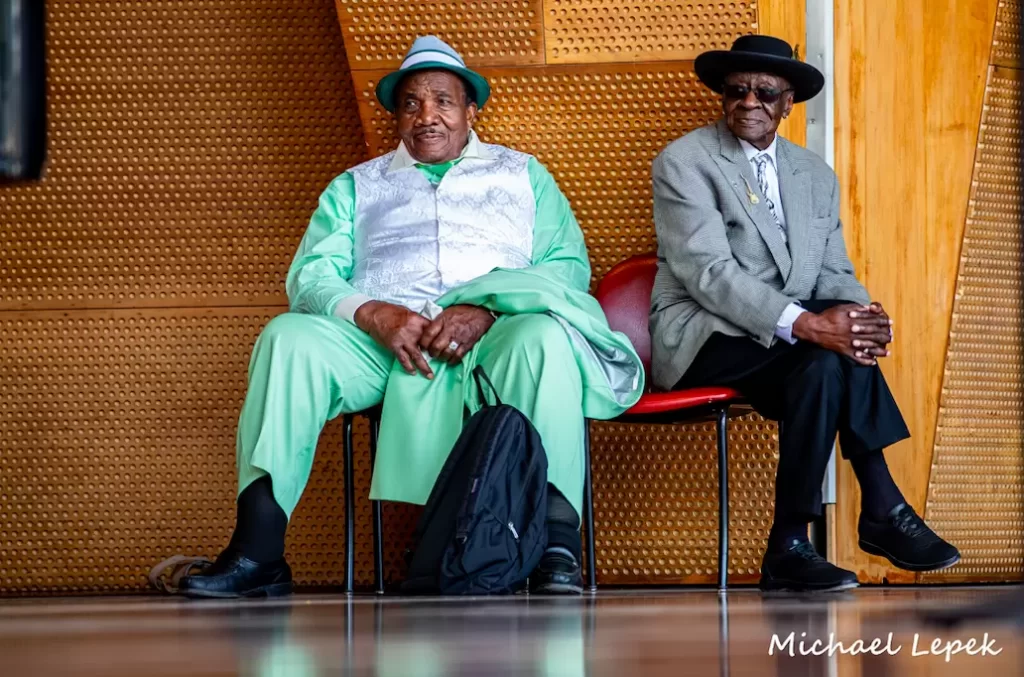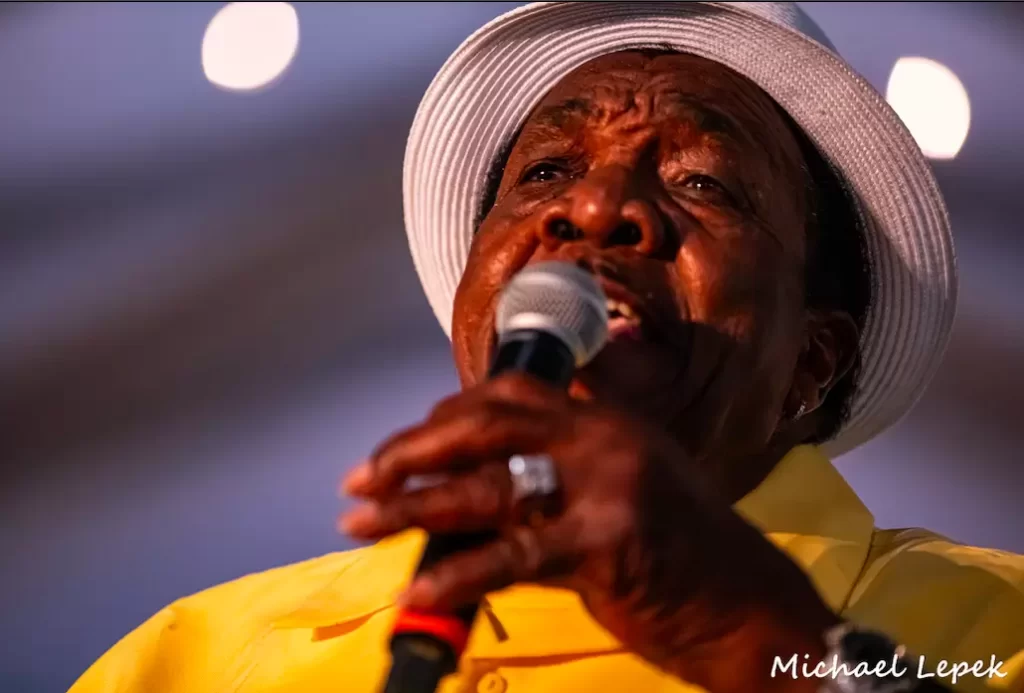His music may sound like Muddy Waters and Howlin’ Wolf, but Willie Buck doesn’t fit the old blues man stereotype.
First of all, music is his after-hours gig, but not an all-consuming obsession. He’d owned his own business for half a century. He’s had 18 kids. And he knows all of them. He still plays Rosa’s nightclub in Chicago every Thursday night. His fourth album for Delmark Records, Willie Buck and The Delmark All-Stars Live at Buddy Guy’s Legends, includes six originals in the style of his mentors Muddy and The Wolf, both of whom he’s played with. At age 87, his advice to me at 81 is to just keep moving. And if I get depressed? “Well, just don’t worry about it as long as you can keep doing what you’re doing. That’s what I do. I don’t worry about it.”

What’s the most important lesson he’s learned in eight decades of living in the fast lane? “Everything I’ve done I learned how to coordinate with people. I learned it from the older guys because, I’ll tell ya, they taught me a lot.
“The older guys were about taking care of business. Those were the guys I wanted to be with, and that’s who I hung with. I didn’t want to hang with the young guys because I didn’t like what they were doing.”
He remembers Howlin’ Wolf. “He was a wild singer. They had a long bar at Silvio’s, and he would get up on that bar and walk from end to end. I did a show with him in ’76, but I can’t remember exactly when it was at the Amphitheater in Chicago on 43rd and Halstead. Believe it or not, Roy Rogers and Dale Evans were on that show I did with Howlin’ Wolf, and I got to meet them for the first time.”
Willie spoke about his unique relationship with Muddy Waters, noting that, unlike Muddy’s children, he had the opportunity to be around him often and witness the full scope of his life and career. “They weren’t raised with him. Some of them I know. I can tell a better story about him than some of them. I can because I was around him so much – so many events. None of his kids knew any of that stuff.”
Willie Buck and The Delmark Allstars Live at Buddy Guy’s Legends is a wayback machine journey into an alternate reality. Yes, there are covers of Muddy’s “Hoochie Coochie Man” and Willie Dixon’s “Rock Me,’ but there are also originals that come from a guy who was there with Buddy Guy and John Primer and still is. Each got their chops performing in South and West Side Chicago clubs in the ’50s and ’60s. Willie moved to Chicago in 1953 at age 16. His first job was at a carwash.
He describes what it was like leading two lives at a day job and late night entertainment back in the day. “Sometimes if they closed the place at 2 o’clock I had to be there at 2 o’clock. I might not get home until 3 o’clock. Then I’d get to work at 8 o’clock the next morning. “You got to be in it in order to be able to do it,” he says about his traditional postwar electric style.

“There’s younger guys that are out there now trying to play it, but I got some guys that are putting out music because they study my music and I tell you, you wouldn’t believe the last band that Muddy Waters had when he passed away. All them guys played with me before they played with him, all of them. I’m the first one John Primer ever recorded with. We’re close friends. I see him tomorrow.”
He’s one of the last guys standing. “The groove I do nobody doing but me. Ain’t nobody can. I got a little grandson that’s coming. He got the same type of music that I have, and he’s really gonna be great. He’s only nine years old, but he knows what to do. He can sing, too.”
Willie has four records for Delmark, the Chicago blues label founded by the late Bob Koester the same year Willie moved to Chicago in 1953. We both agree that Bob was one of the nicest guys in the business. He was the first label head to send me review copies of his albums to review in 1970.
“He was a really nice man. I really liked him, yeah. I hated him giving up the business, but he had the business so long. When it’s time… That’s the way it was with me. I stayed in (my day job) for 50 years, and I just gave it up.
“I started when you could get a coat for five dollars, but I decided 50 years was long enough for me. So, I just went into music full time. No more work for me after that, but I had a nice retirement plan that I took out in the early ’60s. It was one of those plans that was hard to get, but I got it from an insurance man. I serviced his car and became a mechanic, and my insurance guy turned me onto the retirement plan, and it was great of him to do that.
“Delmark has been approaching me for a long time. I just decided to get on there with ’em. This guy Jimmy Dawkins was the coordinator. (Note: Dawkins died in 2013 at age 75.) He’d been approaching me for a long time. I didn’t go with them for a long time. I had my own label and I just decided to go with them, and I’ve been with them ever since.”
It used to be thought that wisdom came with age. “My parents always told us to respect the best way to go, and I never did forget that. If you teach a child when he’s young, he’ll fight you. And that’s true. I went on her word and tried to raise my kids the same way, and I was pretty lucky with them. I didn’t have any trouble with my kids. They were very respectful and still are. It’s a blessing when kids turn out like they do. That’s the way I taught ’em.”
Willie Buck’s real name is William Crawford given to him by his mother. Whatever name he’s called, his music is as fundamental as the masters with whom he first played.


